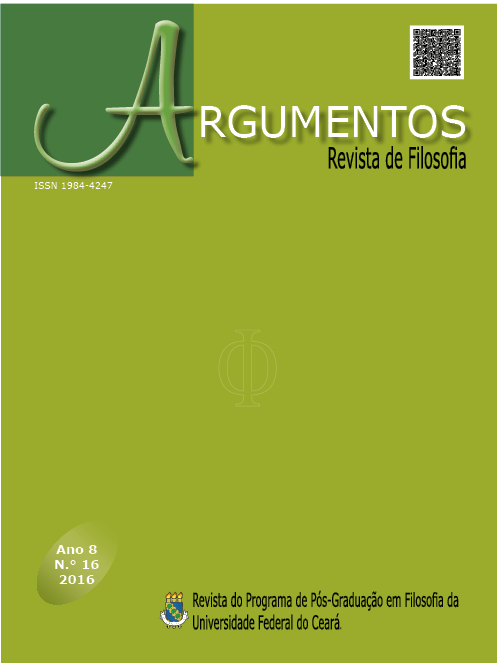Life, politics and economics in Michel Foucault
Keywords:
Population. Governmentality. Economics. Politics.Abstract
In the thought of Michel Foucault, the first major application of power over life in the economic sphere controlled and disciplined insertion body-guy in the producing apparatus (or disciplinary work technology), it is the counterpart of biopower, at first, the decisive injunction this sphere (economic) shall exercise on somatic in the course of modernity. The biopolitics of the population or of the human species, introduced by the mercantilist state and determined by the statecraft of liberalism, will juxtapose and respond on another level the economic and somatic problems of the seventeenth century, welcomed and replicated at a certain level by the disciplinary authority. We seek to emphasize that this phenomenon identified as the “rise of life for power,” the feature overlap between life and politics in today’s societies, edge is crossed tip the political protagonism of the new “economic sphere” in the moment that it goes beyond the narrow and traditional boundaries of the family environment.Downloads
Downloads
Published
How to Cite
Issue
Section
License
Argumentos magazine is licensed under an International Creative Commons Attribution License.
The Magazine uses CC BY inclusion
1) The authors retain the copyright granted to the magazine or the right to initial publication, with the work regularly licensed under the Creative Commons Attribution, which allows the sharing of the work with acknowledgment of authorship and initial publication in this magazine.
2) The authors are authorized to contract additional applicable contracts, for non-exclusive distribution of the version of the work published in this journal (for example, publication in the institutional repository or as a chapter of the book), recognition of authorship and initial publication in this journal.
3) Authors are authorized and encourage to publish and distribute their work online (for example, in institutional repositories or on their personal pages) at any time before or during the editorial process, as they can generate productive changes, as well as increase the impact and reference of published work.




.jpg)










._._3.png)
1.jpg)
._._._.png)
